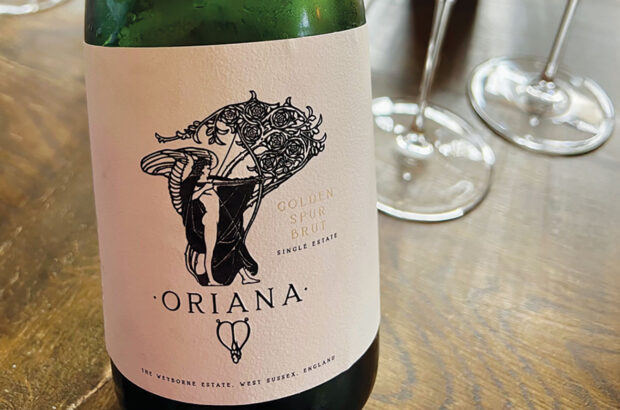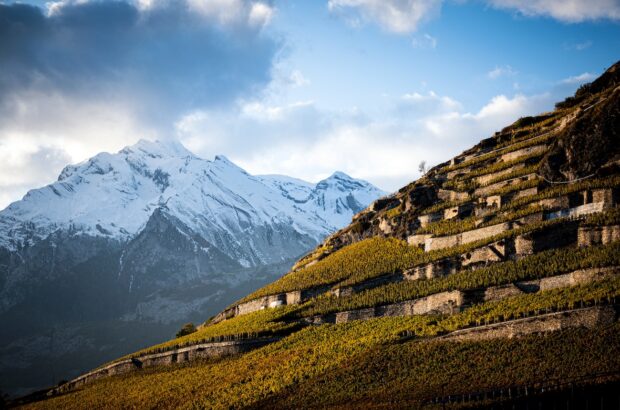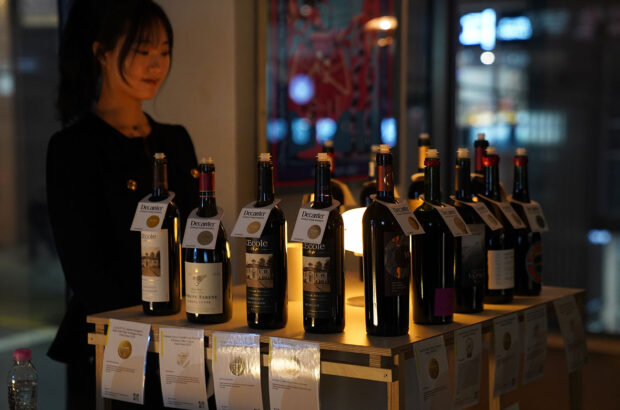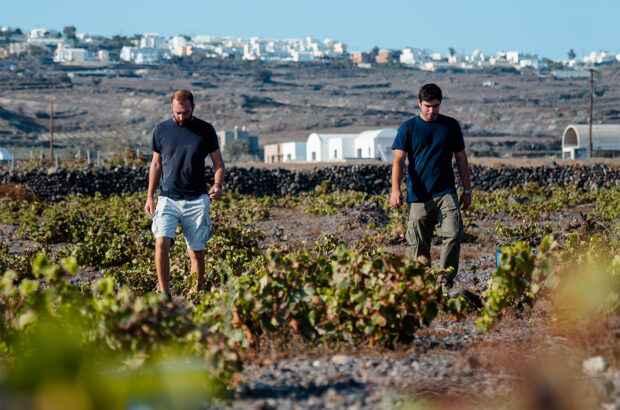As the white wine harvest comes to a close in Greece, winemakers have had to sweat not only from the heatwaves but also from stressful selections and low yields due to uneven ripening.
After a more regular harvest in 2020, growers this year on Santorini, famous for Assyrtiko, reported no rain since April, with record breaking heat.
‘The last such heatwave was in 1987,’ says Elina Dakanali of Estate Argyros. With ambient temperatures reaching the mid-40s, yields were down ‘almost half’ compared to a normal year. ‘We saw how the heat blocked development and even burned some grapes,’ adds Dakanali.
Grape sorting
Careful grape sorting proved essential given irregular ripening. ‘The imbalance and unevenness of ripening was noticed, not only in the same vineyard, but also in single bunches,’ says oenologist Nikos Varvarigos of the island cooperative Santo Wines.
The lack of summer wind, which normally buffers heat, accentuated high temperatures in late July and into August, with nights not cooling down enough. Yiannis Paraskevopoulos, founder of Gaia Wines, reports that yields are down 40% from average.
After careful sorting, Paraskevopoulos says that vigilant winemaking is required this year. ‘We saw grapes either burned, over-ripe or under-ripe, some quite thick skinned without much juice, so we need to be careful with fermentations,’ he says.
Decanter contributor and wine judge Yiannis Karakasis MW, who this year published the book The Wines of Santorini, has dubbed 2021 the ‘year of the oenologist’ because of the demanding work needed for selection and winemaking. ‘We see lower than usual acidities and higher pH readings,’ he says.
Realistic pricing
A silver lining is that growers did not raise grape prices this year as they have done almost annually, which has made Santorini wines relatively expensive. ‘I think they [growers] finally understood the need to be realistic,’ says Paraskevopoulos, as prices per kilo settled at around €3.50. Varvarigos of the Santo Wines cooperative stressed that prices should not exceed that price because overall grape quality was ‘not good’.
As fires continue on the Greek island of Evia, where according to recent news reports over 2,000 people have been evacuated, winemakers throughout Greece also fear the on-going effect of climate change. As well as the summer heat many island vineyards suffered from May hail, which reduced volumes.
In Argolida on the Peloponnese mainland winemaker George Skouras says 2021 has been a tough year, starting with spring frosts in addition to extreme summer heat. ‘We have had almost nothing,’ he says of his vineyards of Chardonnay and Viognier. ‘Many vines stopped maturation due to heat stress.’
Red harvest looks promising
2021 may prove more promising for red grapes, however. In Nemea, for example, Skouras believes it could be a great vintage for Agiorgitiko where the ‘small and thin-skinned grapes have lots of colour and concentration.’
The red wine harvest is expected to begin in early September.







